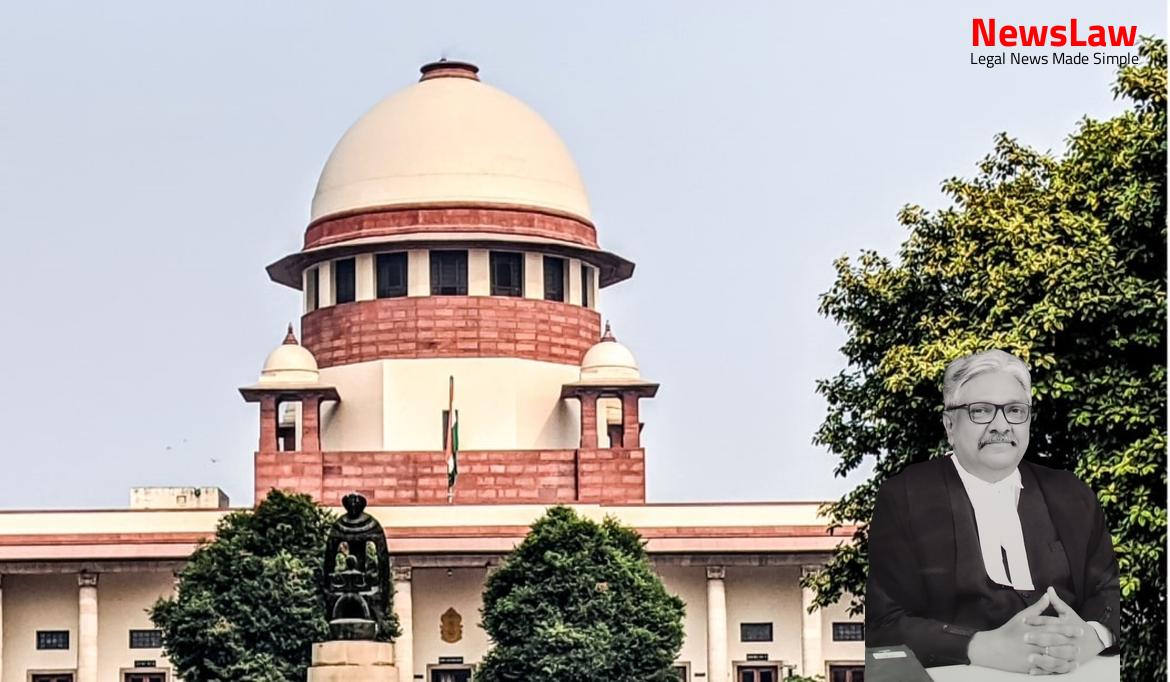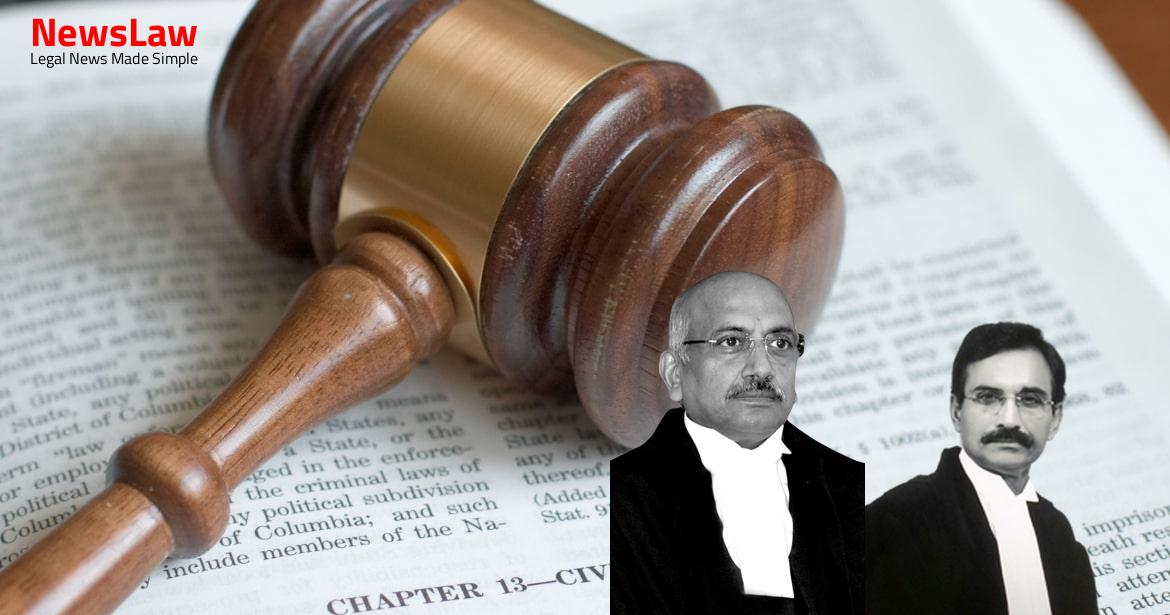This legal case delves into a significant interpretation of tax laws concerning the supply of tangible goods without possession or effective control. The court’s in-depth legal analysis provides clarity on the applicability of service tax in such scenarios, emphasizing key nuances in the taxation system.
Facts
- The respondent is engaged in providing taxable service falling under the category of ‘transport of goods through pipeline’ under Section 65(105)(zzz) of the Finance Act, 1994.
- The equipment regulates the supply of PNG distributed and records the quantity consumed by the customer for billing purposes.
- A Notice to Show Cause was issued to the respondent stating that the transactions are covered under ‘supply of tangible goods service’ under Section 65(105)(zzzzj) of Finance Act, 1994.
- The Tribunal reversed the demand for payment of service tax on charges collected for supply of pipes and measuring equipment to customers under Section 65(105)(zzzzj) of Finance Act, 1994.
- The respondent stated that the measurement equipment is used for its own purposes, and the customer does not use it.
- The ownership of the equipment remains with the respondent, not the customer.
- Charges collected from customers for ‘supply of pipes, measuring equipment, etc.’ while providing new gas connections led to the service tax demand issue.
- The respondent contended that they were not liable to pay service tax, challenging the demand for tax, interest, and penalty.
- The appeal focuses on the interpretation and applicability of Section 65(105)(zzzzj) of the Finance Act, 1994.
Also Read: Analysis of High Courts’ Jurisdiction and Court Orders Under Article 142
Arguments
- The GSA is an agreement for the sale and purchase of goods, namely PNG.
- The terms of the GSA provide contractual rights to the buyer, including the right to verify and dispute the bill raised by the supplier and to seek arbitration.
- Ownership of the SKID equipment continues to vest with the respondent at all times.
- The buyer of gas is not entitled to adjust, modify, or maintain the equipment.
- The purpose of the measurement equipment in a gas supply contract is to measure the quantity of gas supplied to the buyer.
- The buyer has no possessory right, nor can they lease or sub-let the equipment.
- The buyer does not receive any service out of the equipment.
Also Read: Electoral Malpractices in Mayor Election
Analysis
- Section 65(105)(zzzzj) of the Finance Act, 1994 imposes service tax on the supply of tangible goods for use without transferring possession or control.
- The SKID equipment, including measurement devices, is installed and maintained by the seller for accurate billing and regulation of gas supply.
- The buyer has the right to ensure correct billing and delivery of gas, as per the Gas Sale Agreement (GSA).
- The seller’s ownership, control, and maintenance of the equipment satisfy the criteria under Section 65(105)(zzzzj).
- Disconnection of gas services determines the refundable security deposit, which is mainly collected as gas connection charges.
- The SKID equipment is essential for the gas supply agreement and the safety of facilities.
- Industrial and commercial consumers may have different refund percentages based on usage.
- Actual physical use is not the sole indicator of ‘use’ in the context of taxable service under Section 65(105)(zzzzj).
- The Finance Act, 1994, allowed the Central Government to levy tax on services under Entry 97 of the Union List.
- The tax is based on a foundational element of service.
- The matter under consideration does not involve the Shipowners’ case.
- A circular clarified the applicability of certain sections in relation to tax.
- The seller is responsible for setting up the gas pipeline at the cost of the buyer.
- Ownership of the measurement equipment remains with the seller.
- The buyer is responsible for providing land, power connection, and gas pipeline connection.
- The buyer has no rights to adjust or sell the measurement equipment.
- Title and risk in the gas passes from the seller to the buyer at the Delivery Point.
- The Service Tax was introduced to capture consumption of services similar to goods.
- The GSA entered into by the respondent with one of its buyers is a representative sample.
- The purpose of Article 366(29-A)(d) was to tax transactions involving the transfer of the right to use goods.
- Clause 14.3 of the Gas Sales Agreement (GSA) requires the buyer to maintain the Buyer’s Facilities, including measurement equipment, in good working order and compatible with the Seller’s Facilities.
- Under clause 16.4, if the buyer fails to take fifty percent or more of the cumulative DCQ over 45 consecutive days (excluding force majeure or seller’s default), the seller can terminate the agreement.
- The GSA regulates the terms of gas sale between the respondent and its purchaser.
- The Tribunal was found to be in error for interfering with the findings and order of the Adjudicating Authority.
- Regulating pressure and ensuring gas supply safety through measurement equipment is crucial for consumer use.
- The SKID equipment fits the criteria of a taxable service as per Section 65(105)(zzzzj) related to tangible goods usage without possession or effective control.
Also Read: Balancing Power and Transparency: Electoral Bonds Struck Down, Disclosure Mandated
Decision
- Order of the Adjudicating Authority is restored.
- Pending application(s) disposed of.
- Judgment of the Tribunal set aside.
- Appeal allowed.
Case Title: COMMISSIONER OF SERVICE TAX Vs. M/S ADANI GAS LTD. (2020 INSC 513)
Case Number: C.A. No.-002633 / 2020



